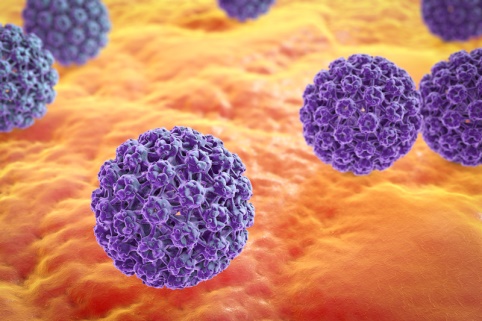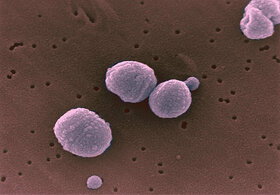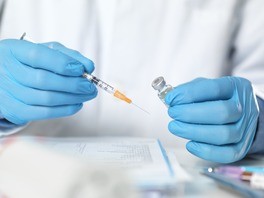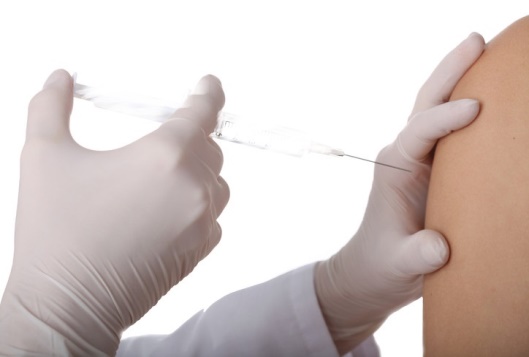| |
Vaccination for the Right Time, the Right Dose, and the Right Recipient
|
|
|
 |
Introduction
|
| The word “vaccine” originates from the Latin words “variolae vaccīnae”, which originally mean the cowpox. The ground breaking concept was introduced by a renowned scientist, Dr. Edward Jenner in the late 18th century, who practised a safe and efficacious means of preventing a deadly infectious disease, the smallpox, by using the pus of a patient previously infected with the cowpox that was less harmful. |
 |
| |
| “Vaccines” work by stimulating the human immune system to fight against the infectious diseases or cancers that could be caused by viruses, bacteria, or other agents. Vaccines have been one of the biggest success stories in modern medicine. The World Health Organization (WHO) estimates that at least 10 million deaths were prevented between 2010 and 2015 thanks to vaccinations delivered around the world. And, vaccines have been proven their values in defending against deadly, but once widespread, diseases, such as smallpox, tuberculosis, diphtheria, tetanus, and pertussis. |
|
▲ back to top
Examples of Vaccines |
| Common examples of the vaccines in Hong Kong include: |
|
Viral
|
|
- |
Hepatitis A Vaccine |
 |
| - |
Hepatitis B Vaccine |
| - |
Human Papillomavirus (HPV) Vaccine |
| - |
Japanese Encephalitis (JE) Vaccine |
| - |
Measles, Mumps and Rubella (MMR) Vaccine |
| - |
Rotavirus Vaccine |
| - |
Seasonal Influenza Vaccine (SIV) |
| - |
Varicella Vaccine |
| - |
Covid-19 Vaccine* |
| |
|
Bacterial
|
|
- |
Bacillus Calmette-Guérin (BCG) Vaccine |

|
| - |
Haemophilus influenzae type b (Hib) Vaccine |
| - |
Meningococcal Vaccine |
| - |
Pneumococcal Vaccine |
| |
| |
|
Combined
|
|
- |
Diphtheria, Tetanus, acellular Pertussis and Inactivated Poliovirus (DTaP-IPV) Vaccine
|
*For details on the Covid-19 vaccines, please visit the following website: www.covidvaccine.gov.hk/en/faq
|
|
▲ back to top
Schedules (The Right Time)
|
|
Vaccine protects our body by stimulating our immune system to prepare for the “real” infection that might happen in our life. Starting from the age of newborn, individuals can be vaccinated in accordance with established schedules.
|
| |
| For examples, under the Hong Kong Childhood Immunisation Programme, a newborn baby will be given with the BCG Vaccine, and also a first dose of the Hepatitis B Vaccine; while at the age of 1 month, the baby will receive a second dose of the Hepatitis B Vaccine. For Diphtheria, Tetanus, acellular Pertussis and Inactivated Poliovirus (DTaP-IPV) Vaccine, babies at the age of 2 months, 4 months, and 6 months will be given with the first, second and third dose of the vaccination respectively. |
 |
| |
|
As for the Seasonal Influenza Vaccine (SIV), individuals from the age of 6 months onwards can be inoculated. Since the strains of influenza viruses that prevail in the community may change from time to time, the SIV needs to be received every year. You are advised to receive vaccination at least two weeks before the flu season each year; because it takes time for our body to build up the relevant antibodies.
|
|
▲ back to top
The Right Dose
|
|
Some vaccines only require one single dose to provide life-long protection. Nevertheless, most vaccines will require more than one dose (i.e. with the second dose, or third dose, several months apart). In addition to the above mentioned primary course of “multiple doses”, some vaccines may even require the recipient to receive a “booster dose” after a fixed period (e.g. one year, or several years after). Different vaccines will have their own dosing; please consult the healthcare professionals for advice. |
| |
|
Vaccines usually come as injections; but some other forms (such as oral form and nasal spray) are also available. The vaccination doses are generally tiny. For the injection form (intramuscular or subcutaneous), the amount is usually about 0.5 millilitre (mL); for the oral vaccine, it could be more than 1 mL; for the nasal spray, the amount is about 0.1mL for each nostril. Other amounts of doses are possible for some other vaccines, depending on the way of administration, and the age of the recipient. For example, when BCG Vaccine is given to a newborn baby, the amount of dose could be as low as 0.05mL for intradermal injection. Healthcare professionals shall refer to the product insert for the recommended dose for the individual age group.
|
 |
| |
|
It is important to complete the whole course of vaccination. If a dose is missed, you should visit your doctor as soon as possible for professional advice.
|
|
▲ back to top
The Right Recipient
|
|
The vaccine products will have their own indication; and specific target population. For examples, the HPV vaccine is targeted at active immunization for individuals against cervical, vulvar, vaginal, anal lesions and cancers, which are related to persistent HPV infection. Individuals as early as the 9 years of age can receive the HPV vaccination.
|
| |
|
For the SIV, babies as early as 6 months of age could be vaccinated; and people with a higher risk of influenza infection and its complications, such as the elderly, children, pregnant women, patients with chronic illness (such as the heart, lung, kidney disease, metabolic disease and immune insufficiency), and obese persons (who are too heavy with Body Mass Index (BMI) value ≥ 30) are especially encouraged to receive the SIV for personal protection. Residents of old age homes, and those living in care homes for the disabled also need the SIV. Apart from these, healthcare workers, poultry workers, pig farmers and other people who have a higher risk of contracting influenza should get vaccinated to ensure early protection.
|
| |
|
For those who are suitable for the vaccinations, they should receive the vaccines in a timely manner, and according to the schedules. Under the Hong Kong Childhood Immunization Programme, children will receive different vaccines at specific ages according to the recommended schedules. For travellers planning to go abroad to high risk areas which require vaccination, you are advised to visit the website of the Travel Health Service before having your itinerary.
|
 |
| |
|
Not everyone is suitable for each kind of vaccine. It should be evaluated by a registered doctor before any vaccine is given. Some people (although the chance is rare) may be hypersensitive (e.g. symptoms of hives, wheezing, etc.) to a particular vaccine; rendering them not suitable for that vaccination.
|
| |
|
Healthcare providers will ask vaccine recipients on their medical history, and whether hypersensitivity to vaccines has happened; they will evaluate the health condition before deciding whether to give the vaccine, or continue the vaccination schedule.
|
|
▲ back to top
Some Common Side Effects of Vaccines
|
|
Vaccines can trigger immune response and they may cause some side effects. After vaccination, healthcare providers usually advise the recipient to stay for a while (e.g. 15 minutes to half an hour); in case any acute hypersensitivity happens, immediate treatment could be provided.
|
| |
|
The side effects of vaccines are usually mild and transient; and will subside in a few days. The common side effect includes pain (and sometimes redness, swelling and hardening) at the injection site. The recipient may also feel tired, or have muscle pain. Some individuals may have fever, and headache, etc. Oral vaccines may cause gastrointestinal discomfort (such as diarrhea). Each vaccine will have its own side effect profile. If the side effect persists, or worsens after a few days, seek medical consultation.
|
 |
| |
|
Severe adverse effect (e.g. swollen mouth and tongue, difficulty in breathing, or paralysis) warrants immediate medical attention.
|
| |
|
In general, vaccines are safe and their efficacy and quality have to be proven before they could be marketed.
|
| |
|
Information about childhood immunization is available at the Family Health Service of the Department of Health. To understand more about communicable diseases, please visit the website of the Centre for Health Protection.
|
|
▲ back to top
Stability and Storage for Vaccines
|
|
Vaccines should be stored under conditions as recommended by the manufacturers. Each vaccine has its specific shelf-life and storage requirements, which will be displayed on the label. Usually vaccines need to be stored between 2°C and 8°C; and away from light. The storage conditions (such as temperature) should be closely monitored and recorded. Storage outside the recommended conditions may affect the quality and potency of the vaccine; and may render it not usable. Although the vaccine should usually be stored at 2°C ~ 8°C, it could nevertheless stay at room temperature for a short while immediately before the vaccination.
|
 |
| |
|
Most vaccine products should not be frozen. Any frozen vaccines (contrary to the storage instruction) have to be discarded.
|
| |
|
Prior to use, the vaccine should be inspected for any irregularities or foreign matters. If in doubt, the vaccines should not be used.
|
|
▲ back to top
Legal Aspects of Vaccines
|
|
Vaccines are prescription-only medicines; and like any other pharmaceutical products, vaccines must be registered by the Pharmacy and Poisons Board of Hong Kong, before they can be sold, or distributed locally in Hong Kong. Importer/exporter of pharmaceutical products must be holder of a wholesale dealer licence issued under the Pharmacy and Poisons Ordinance (Cap. 138) and a valid import/export licence is required for every shipment of the pharmaceutical to be imported or exported.
|
| |
|
For all registered pharmaceutical products, the outermost package (label) must display a Hong Kong Registration Number (i.e. HK-XXXXX (five numbers)). In addition, the label should also have the product name, the name of the active ingredient and its quantity, the name and address of the manufacturer, the batch number, and the expiry date. For prescription-only medicine, the label should have the text “Prescription Drug 处方药物” in both English and Chinese (Figure).
|
| |
.png)
|
| |
|
For sterile products, the label on the vial or syringe of the vaccine should also contain the batch number and the expiry date; and, if applicable, the name of the preservative.
|
| |
|
Any specific storage instruction of the vaccine (e.g. Store at 2°C ~ 8°C; Do not freeze) should also be displayed clearly on the label.
|
|
▲ back to top
▲ back to top
Tips on Differentiating a Registered Product
|
|
As mentioned above, the box or the label of a vaccine should contain a Hong Kong registration number as well as “Prescription Drug 处方药物”. If this specific information is not found on the outer box of the vaccine, it is probable that the product is not registered in Hong Kong.
|
 |
| |
|
Under the existing legislation, the name of the pharmaceutical product and its active ingredients are registered in English. Therefore, the product name and the active ingredient name in English will be displayed on the outer box, some products may also have Chinese product names in additional to the English names. And, other information, e.g. usage instructions, warnings, can be displayed in English and/or in Chinese. Occasionally, there may be statements in a third language in addition to English and Chinese, e.g. some European languages for products destined to some European countries. However, if you notice the outer box of a vaccine “only” contains foreign languages or “only” in Chinese, whether simplified or traditional Chinese, it is probable that the product is also not registered in Hong Kong. Some examples may include: the outer box only labelled in Japanese; or the product only contains simplified or traditional Chinese without a product name in English.
|
|
▲ back to top
Consumers’ Rights |
Vaccines are prescription drugs. Consumers will usually receive vaccination at the premises where registered doctors practice their profession (for examples, hospitals, clinics, private consulting rooms). Vaccination needs to be performed by and under the supervision of registered doctors. Before receiving vaccination, consumers can look up whether the responsible person is a doctor that is registered in Hong Kong. For the list of registered doctors, please visit the website of “The Medical Council of Hong Kong”.
https://www.mchk.org.hk/english/list_register/index.html
|
 |
| |
|
Where necessary, citizens can ask for viewing the vaccines; check for the five digits “Drug Registration Number (HK-XXXXX)” on the label of the vaccine product; and see whether the necessary information is on the outermost package of the product before the healthcare workers perform the vaccination. If suspecting that a product is not registered in Hong Kong, you check with or report to the Drug Office of the Department of Health (Tel.: +852-2572-2068; email: pharmgeneral@dh.gov.hk).
|
| |
|
You can also contact the Registration Certificate Holder of the product, as to how to distinguish product authenticity. Consumers can compare the anti-counterfeiting features of the products, and check for the details such as batch number and expiry date. In cases of doubt, you can contact the Hong Kong Association of the Pharmaceutical Industry for enquiry (Tel.: +852-2528-3061; email: info@hkapi.hk). If you want to report a counterfeit product, please contact direct the Custom and Excise Department of Hong Kong (Tel.: +852-2815-7711; email: customsenquiry@customs.gov.hk).
|
|
▲ back to top
Summing Up
|
|
Vaccines are manufactured with stringent quality control; and require due attention to temperature during storage and during transportation. They are prescription-only medicines. Although vaccines may cause side effects, they help us to develop immunity against the disease-causing agent. With better understanding of the vaccines and with proper use, the vaccines are valuable tools to protect public health.
|
.png) |
|
▲ back to top
|
|
Acknowledgement: The Drug Office would like to thank the Centre of Health Protection (CHP) for their valuable contribution to the preparation of this article.
|
|
|
|
|


